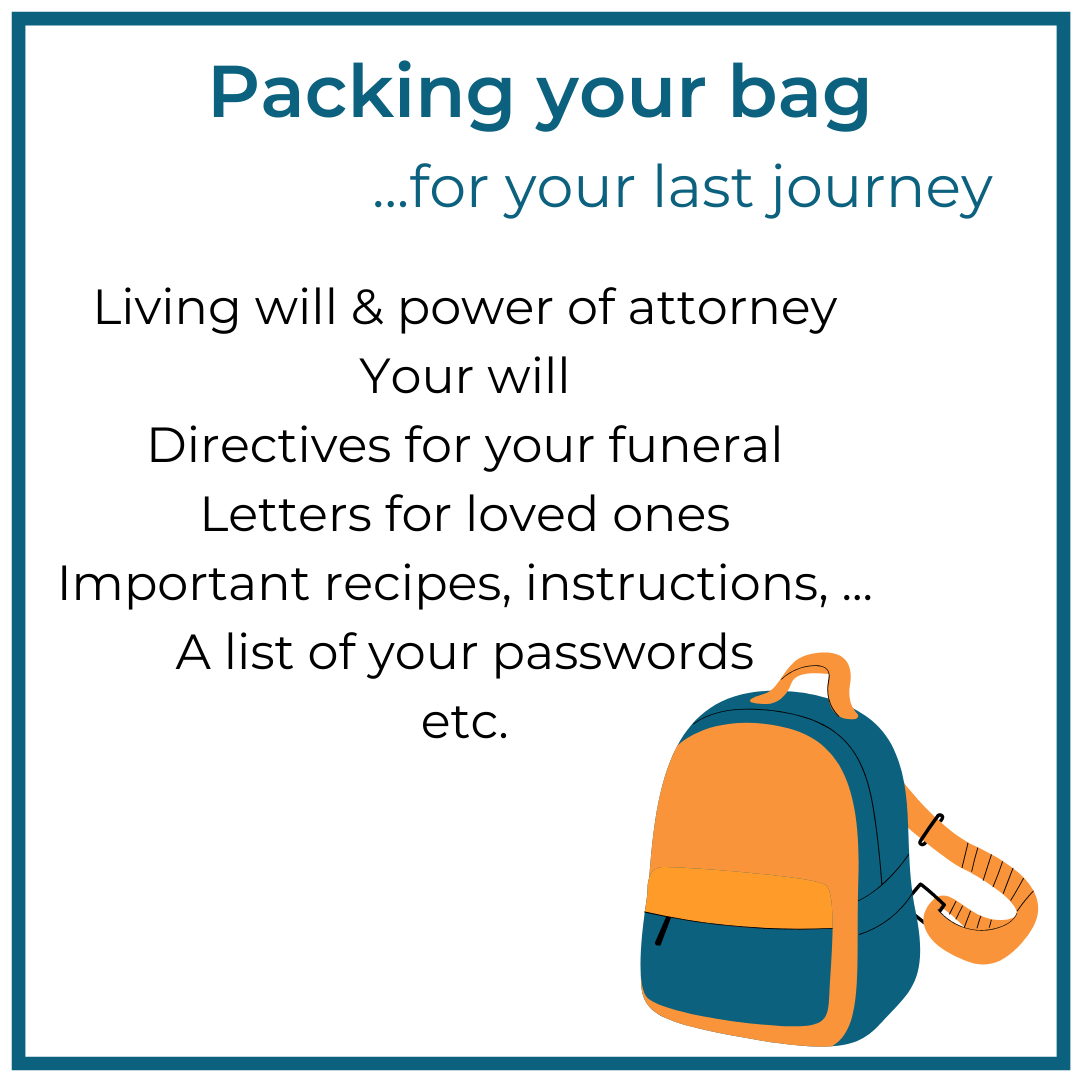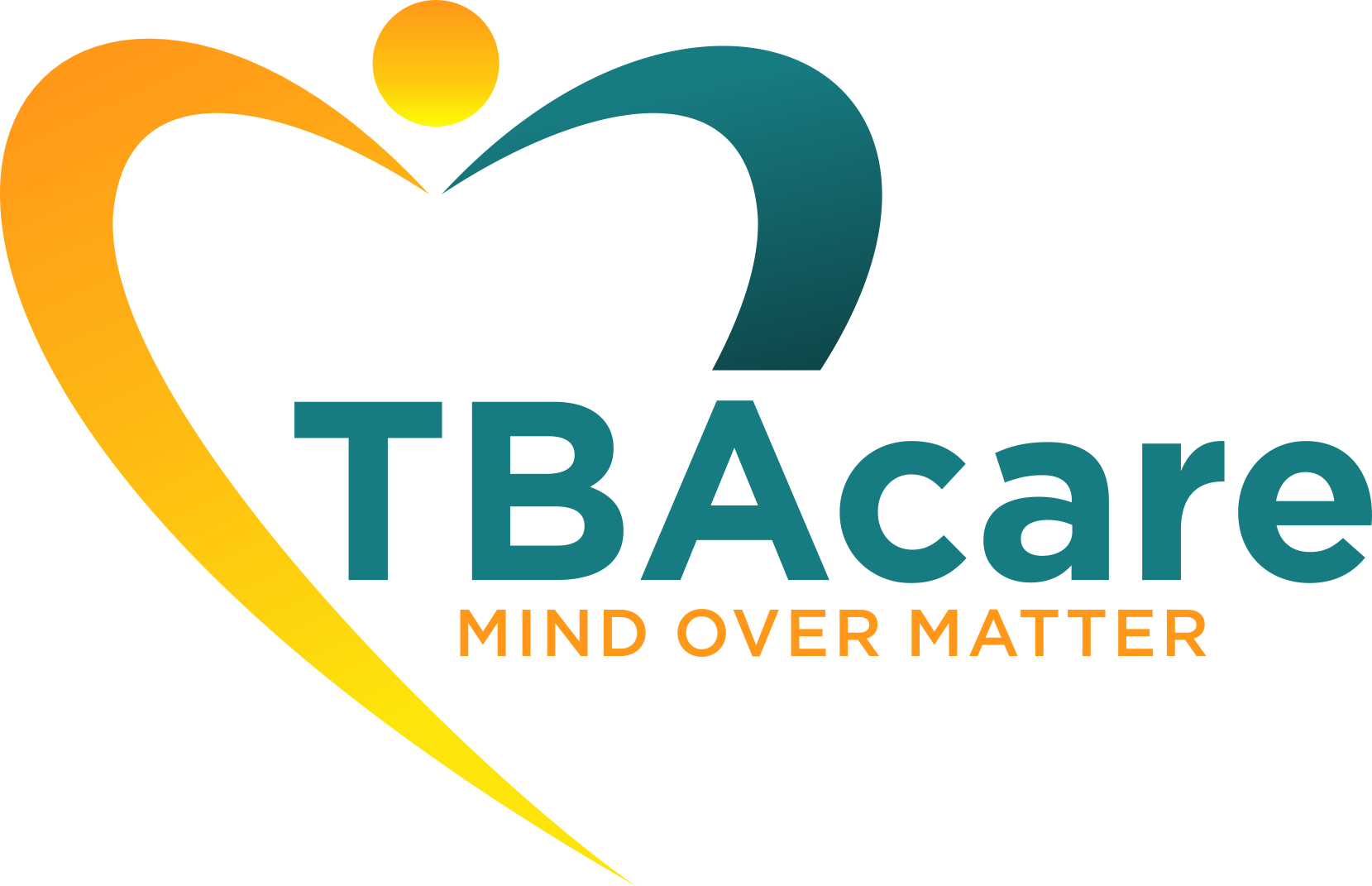This is the last of the 6 potential phases of a cancer journey, but even though this phase is focusing on the end of life and confronting mortality, it is a phase that works sort of as an umbrella for all other phases, too. Because if we’re honest, getting a cancer diagnosis always puts the topic of death front and center, no matter how well treatment works, how great the chances are or if the cancer patient is in remission: There is always at least a moment where the topic of mortality is very present and the inevitability of it is clear.
And because this last phase is so omnipresent, our recommendation is always to try to consciously work with and through this phase as soon as possible. Once these taboo topics have been dealt with, there is time and space to focus on healing and to put all the energy into recovering from cancer.
Because this is a topic that is so important for everyone, not just cancer patients, we are veering off the usual structure and will not look at Millie and Edwin in particular, but rather open this generally and have it address you specifically.
So, what helps when confronted with mortality?
First off, talking about it – with family, friends and all loved ones.
Death is a topic that is rarely discussed and often even a taboo topic in many societies. And still, we all know that it is a certain part of life and our time on this earth. It is hard but talking about it is important. There can be a deep sense of relief when letting go of notions that death is something that needs to be kept behind closed doors and away from fragile people and children. Why not prepare in the best way possible for something so certain?
“But if I talk about it and prepare for it, I invite death to come for me even sooner”
This is a common statement regarding this topic. And it is understandable. It might help to think about it this way: No one knows when the time of death is for an individual. It could be tomorrow or 80 years from now. But wouldn’t it be better to be prepared and have gotten all matters settled so that your loved ones know of your last will and wishes? So that they are not trying to figure out how you imagined your funeral to be while coping with the loss of you? How about in medical emergencies and serious accidents, if you’re not able to make your decisions known? Wouldn’t it be better to have let someone know what you would want?
Death is certain, but the time of it is not. So, it might be a good idea to deal with this now before it is too late. And just because you dealt with it does not mean that all your decisions and wills are needed the next day. They can just be there for the next decades, collecting dust. The important thing is that you took the time and openly and honestly talked about what should happen once you die. And once you have done that, you can put all your energy into living life.
One way of preparing for this inevitability is tip number 2:
Packing a bag for the last journey
What belongs in a bag for the last journey? A couple of different things that are useful for the people left behind: A (living) will, a list of passwords, proxies or power of attorneys, family recipes, letters to loved ones, a list of insurance and bank information, wishes for the funeral…
Anything that should be settled and decided upon before your time on earth is up. And this bag is not just for cancer patients – everyone can be in an accident and die suddenly, without warning. To make this easier for loved ones, a packed bag is crucial. And once packed, this bag can be put into the closet and gather dust for the next 30 years.
This is a very difficult exercise and will require strength, honesty and the willingness to let emotions come freely. It may help to do this as a family so that everyone is informed and knows what is expected.

Dealing with Death to feel more Alive
The quantity of life is uncertain. But we can focus and improve the quality of life. And that’s what it is about. By dealing with the uncertainty, we can leave this topic behind and focus on the actual living life. We can prepare, write down instructions and information – pack a bag – and then we can put it all aside with the knowledge that there is nothing left to do but to live well.
Ideally, packing a bag is a family affair. It would be optimal for everyone (or at least someone) to know of last wishes and what is to happen after death.
This is not an easy task. But we encourage you to take the time to do this and put it all in writing (and have it confirmed by a notary, depending on how this needs to be done in your country) so that your last will is set.
These were the 6 potential phases of a cancer journey. Some topics and thoughts of each phase can also be found in other phases, are ever-present and thus cannot be limited to one specific time-frame, but overall, we hope that the description of each phase resonates with you and presented you with new ideas, a structure and some impulses for your life (as a patient or relative or cancer coach).
If you ever need help dealing with a cancer diagnosis, we encourage you to reach out to psycho-oncologists, cancer/life coaches, psychologists, and therapists. Help is available and you do not have to and should not go through this experience alone.
As always, take care, all the best and until next time!
Your TBAcare Team
![]()
